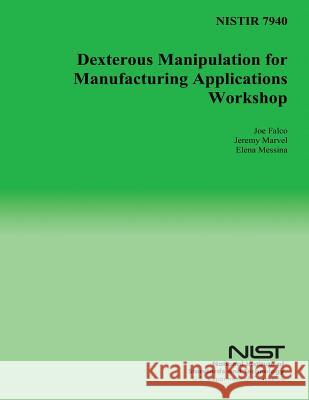Nistir 7940: Dexterous Manipulation for Manufacturing Applications Workshop » książka
Nistir 7940: Dexterous Manipulation for Manufacturing Applications Workshop
ISBN-13: 9781499528411 / Angielski / Miękka / 2014 / 28 str.
Manufacturers face many challenges in implementing next-generation automation, especially when their production mix involves low volumes of parts with high mixtures of part types. Small batches, which might include even batches of one, require quick turnover rates and the ability to reprogram a multiplicity of involved processes. This challenging environment is aggravated for small and medium sized manufacturers who already have limited capital and high labor costs. Coupled with the low volume and high mix processes, this makes installing, supporting, and modifying dedicated automation systems prohibitively expensive and structurally impractical. Automation requirements to support these manufacturing needs are beyond the capabilities of even the most sophisticated robots, and present major obstacles to moving robots into small and medium-size enterprises. One of the essential capabilities needed to address the challenges in next-generation automation is believed to be robots that are equipped with dexterous manipulators. Dexterous manipulation has been defined as "an area of robotics in which multiple manipulators, or fingers, cooperate to grasp and manipulate objects."
Zawartość książki może nie spełniać oczekiwań – reklamacje nie obejmują treści, która mogła nie być redakcyjnie ani merytorycznie opracowana.











